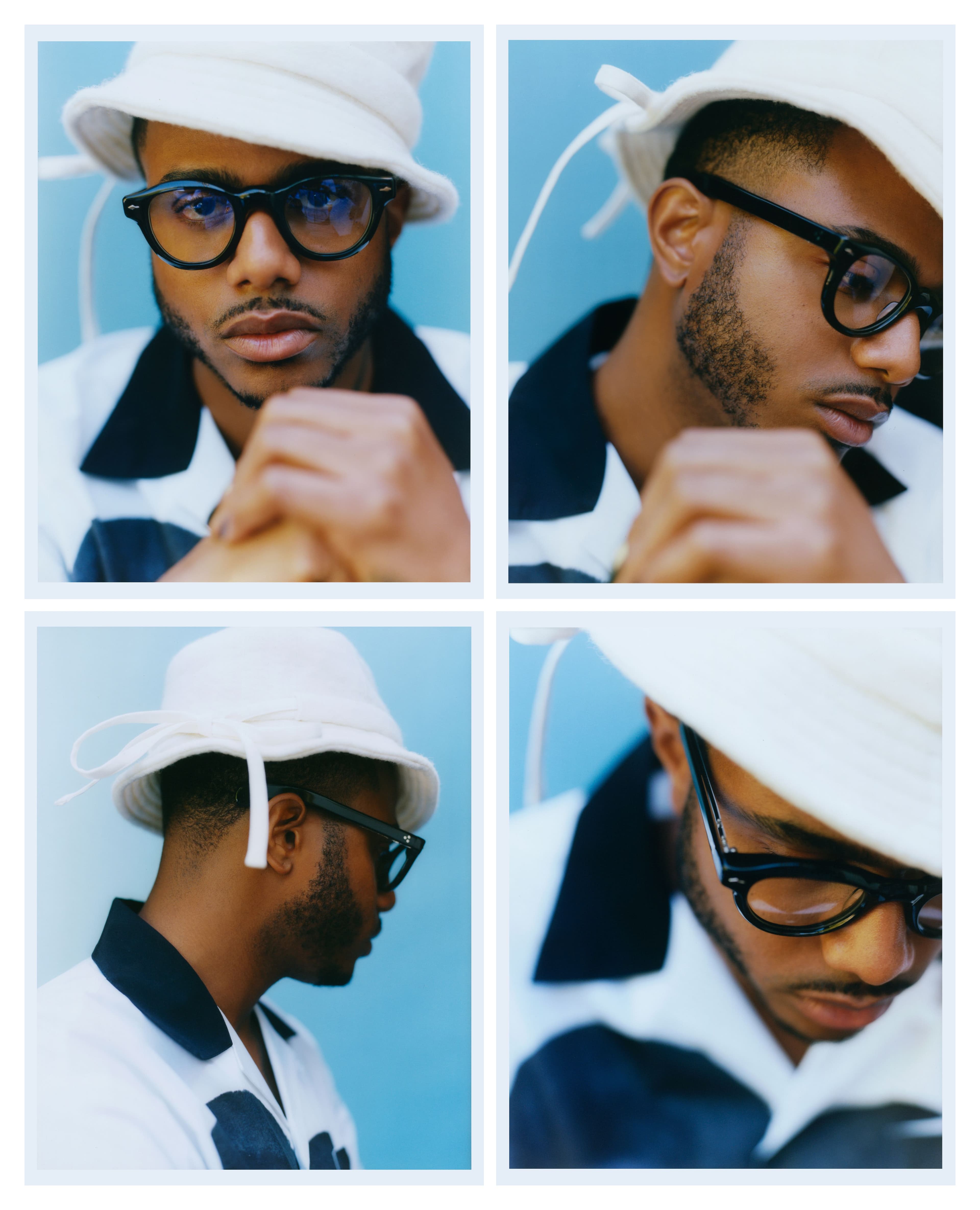
Shirt by Marni. Hat by Jacquemus. All glasses throughout by Jacques Marie Mage.
Kwame Onwuachi Wants to Expand Your Palate
“I don’t ever want to be labeled,“ Kwame Onwuachi states. “I just want to do the things that make me happy.“ The simplicity of this expression may be misleading: Between starting a creative production company, releasing a nail polish line, hosting the James Beard Awards, venturing into acting, and more, it’s clear that there’s a deep determination behind those words. But all these new ventures stem from his experience as a chef, an important role that catapulted him to fame while bringing to light African and Caribbean cuisine that America has largely overlooked.
Raised in the Bronx with a two-year spell in Nigeria, Onwuachi’s love for cooking started where most chefs found their own passion: “My mom’s kitchen,“ he immediately recalls. “My mom had a catering company at the house, and at five years old, she threw me an apron and we all had to help pitch in to keep the lights on.“ It was some time before Onwuachi realized it would also become his career. After he dropped out of college, the only jobs he could find were at restaurants and he eventually fell into the world of fine dining. While waiting tables at Tom Colicchio’s seminal Craft, he was exposed to the dedication and skill that goes into cooking. “Seeing the attention to detail and care that they put into all their food and all the steps and the guests themselves,“ he recalls, “it really made me want to explore it on a more serious level.“
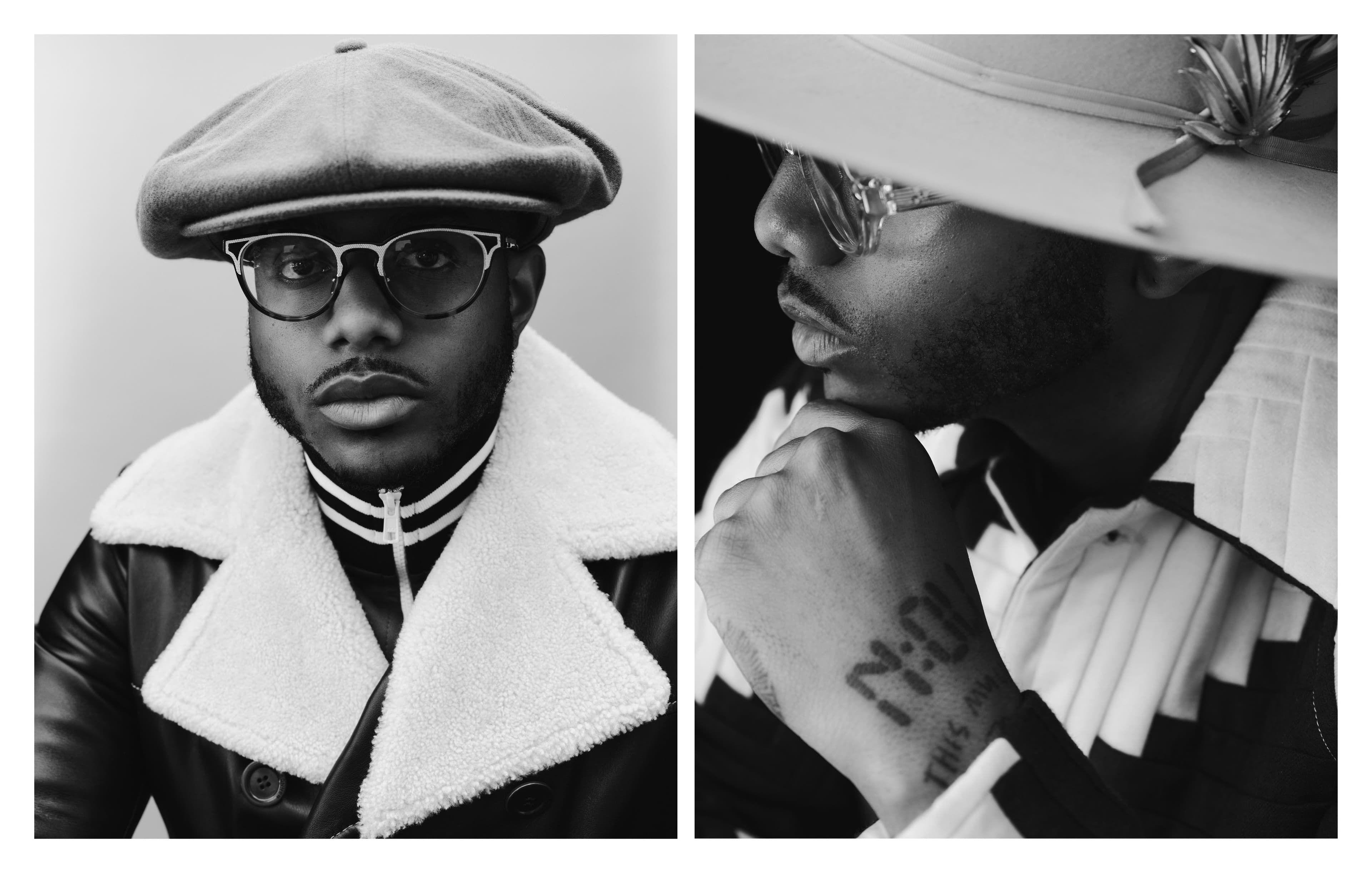
Left: All clothing by Wales Bonner. Hat by Junya Watanabe Man. Right: Coat by Bode. Hat, Onwuachi’s own.
Ever the entrepreneurial type, Onwuachi first founded his own catering company called Coterie and visited the best restaurants in New York to expand his palette. He then enrolled at the Culinary Institute of America, eventually finding himself in the kitchens of some of those very restaurants, including iconic spots like Per Se and Eleven Madison Park, offering him a masterclass in technique. “That’s what I really took away from those restaurants because they’re operating at a really high level, trying to get everything as perfect as possible and getting those reps in and those hours trying to sustain perfection,“ he explains.
Onwuachi’s next step ended up being pivotal to his trajectory both as a chef and a cultural figure. He started the fine dining restaurant Shaw Bijou in Washington, DC, and after a lukewarm reception, the lead investors decided to shutter the operation within two months. Though he was dealt a heavy blow, Onwuachi responded by shifting his perspective. He began learning more about the history of Afro-Caribbean cuisine and a year later he reemerged with the hotel restaurant Kith and Kin, where those influences led to critical acclaim. In 2019, with a rollercoaster of a career already behind him, he published the memoir Notes From a Young Black Chef—now being adapted into a television series. “I’m relatively young to have a memoir,“ he admits, now thirty-two, “but I was approached because I told my story so openly and honestly.“
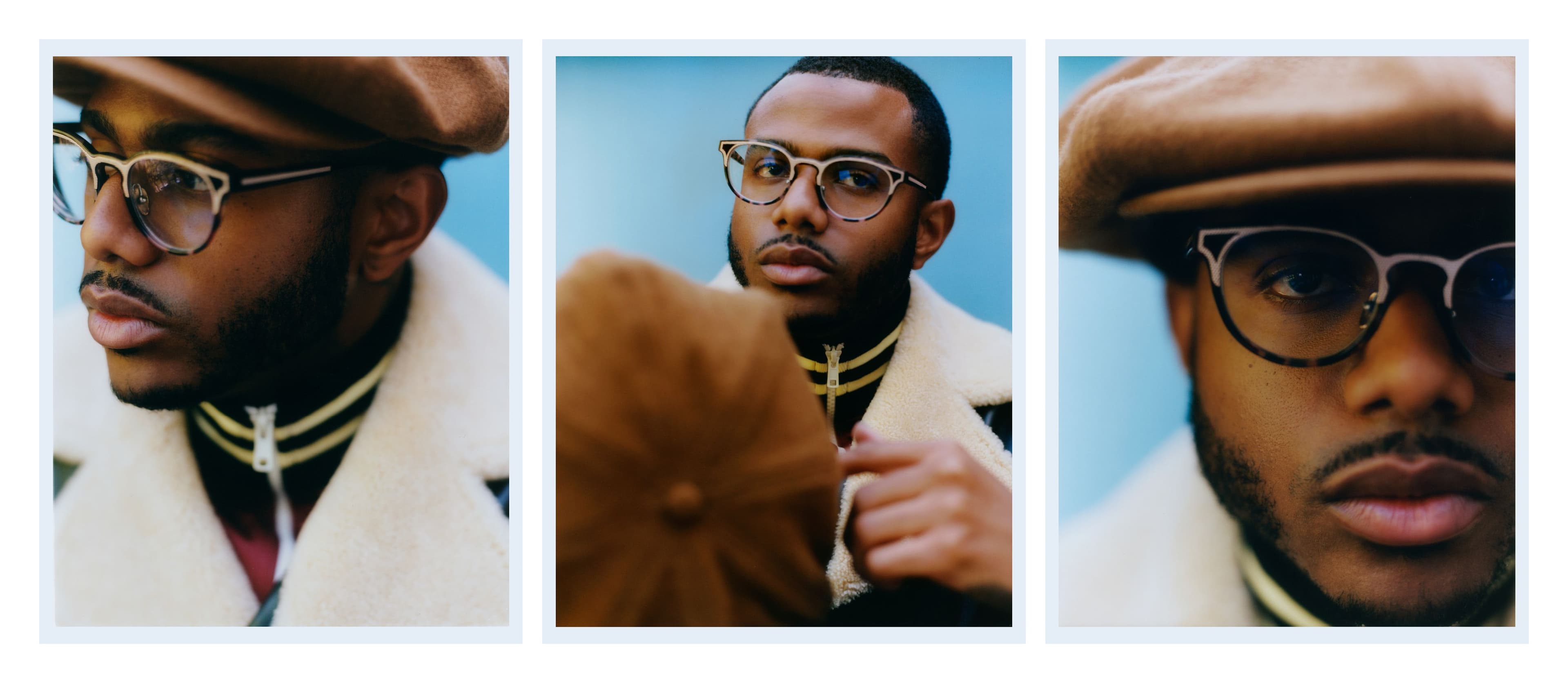
All clothing by Wales Bonner. Hat by Junya Watanabe Man.
His follow-up to Notes is his first cookbook, My America: Recipes From a Young Black Chef, in which he expands on what was so successful at Kith and Kin. In it he collects dozens of recipes that he has known for much of his life, but folds in the history that gives them their cultural significance. “When I was writing My America, I don’t want to say I discovered new things, because it was the stuff that I grew up with,“ he says. “But what I discovered is the stories behind these dishes and that’s why this book is also so potent. It’s in the anecdotes that really get into why they’re around, why they stood the test of time, and the people that made them what they were.“
“What I want people to know is you can’t talk about American cuisine without talking about West African cuisine,“ Onwuachi asserts. “It directly influenced it.“ Many “American“ dishes that we are accustomed to have deeper roots than we realize. “Jambalaya is a derivative of jollof rice; chicken and dumplings is like fufu and stew; barbecue is suya,“ he adds. “Think about the ingredients like rice, watermelon, benne seeds, okra—these are quintessential American things that came from West Africa.“ Onwuachi doesn’t only want readers to acknowledge those connections, but also recognize that this is American food. “America is a country made up of immigrants, so there are a lot of Caribbean and West African immigrants here in America that do know about it. For the kids of those people, like myself, that was the American cuisine growing up.“ Unfortunately, most people encounter these cuisines in smaller establishments, which can sometimes undermine the complexity that goes into the cooking. “My America talks about all these different types of cuisines and also showcases the attention to detail and refinement that goes into them,“ Onwuachi continues. “People think that they’re only limited to mom-and-pop shops, but they’re not; these dishes are intensive. I dare you to try and make a good curry goat against somebody who’s been making it for years, and you’ll see how refined it is.“
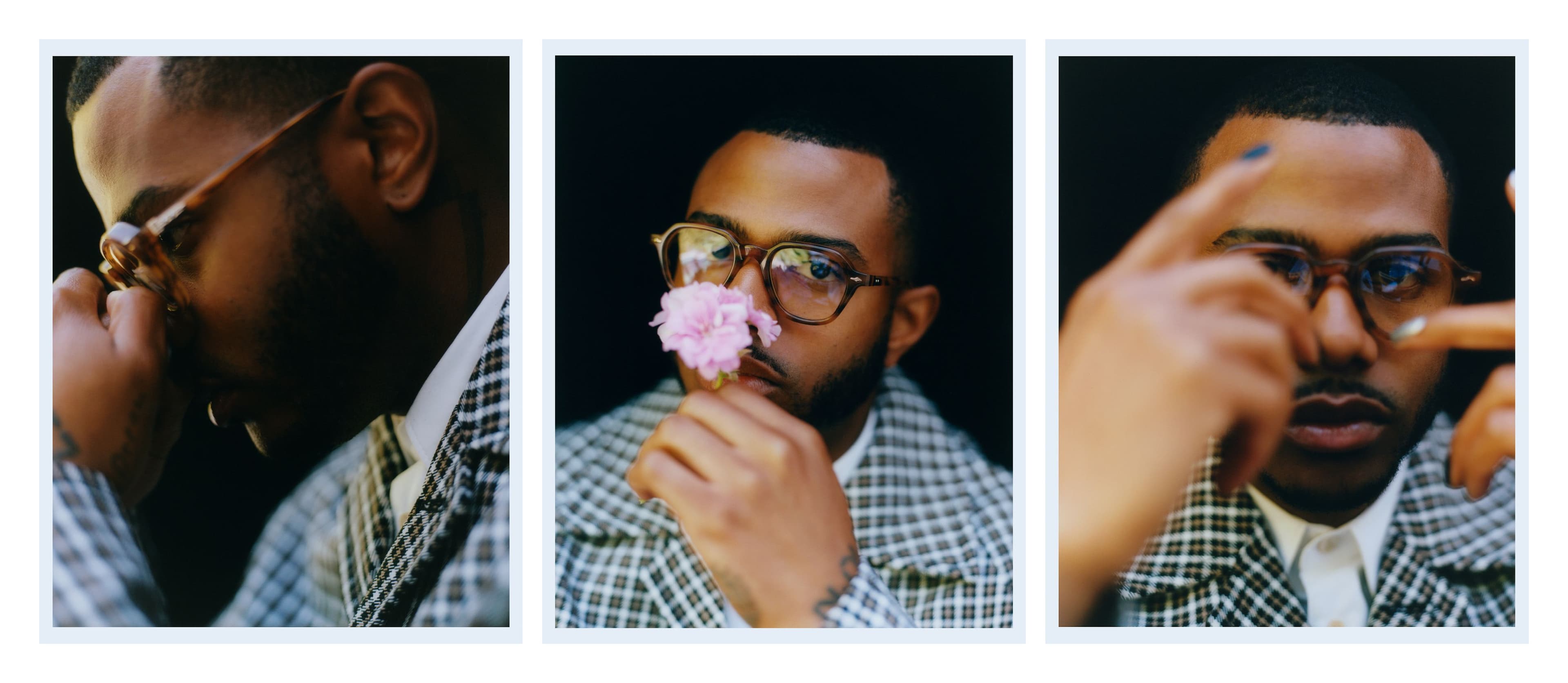
Coat by Courrèges. Shirt by Acne Studios.
Onwuachi is optimistic that the restaurant scene is starting to become more amenable to this type of diversity, but is well aware that there’s much more that can be done. “I think there needs to be more of those restaurants that can cater to the masses and we’re seeing a transcendence of that,“ he says. “Canje in Austin, Benne On Eagle [in North Carolina]—so you’re seeing a boom in that, but it needs to be more. It starts from investors believing in people, it starts from food writers seeking that type of cuisine out and writing about it. You’re seeing an uptick, but there could be more and these things take time.“ Between his book and the public platform his position allows him, he’s happy to take on some of that responsibility himself. “These are things that people aren’t too familiar with,“ he says. “People like me, I got to talk about it every chance I get.“
My America: Recipes From a Young Black Chef is out now.
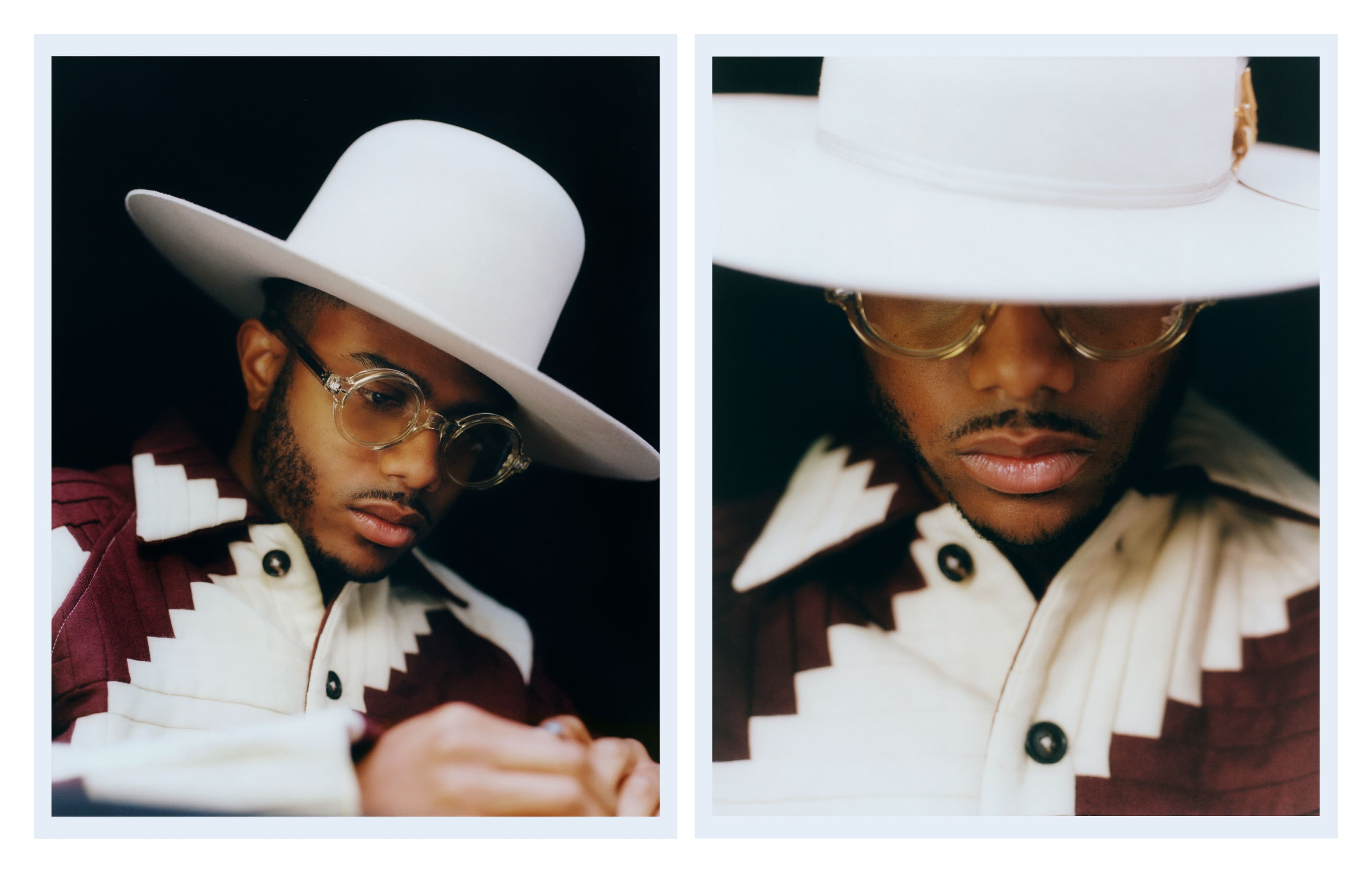
Coat by Bode. Hat, Onwuachi’s own.
As a nonprofit arts and culture publication dedicated to educating, inspiring, and uplifting creatives, Cero Magazine depends on your donations to create stories like these. Please support our work here.






